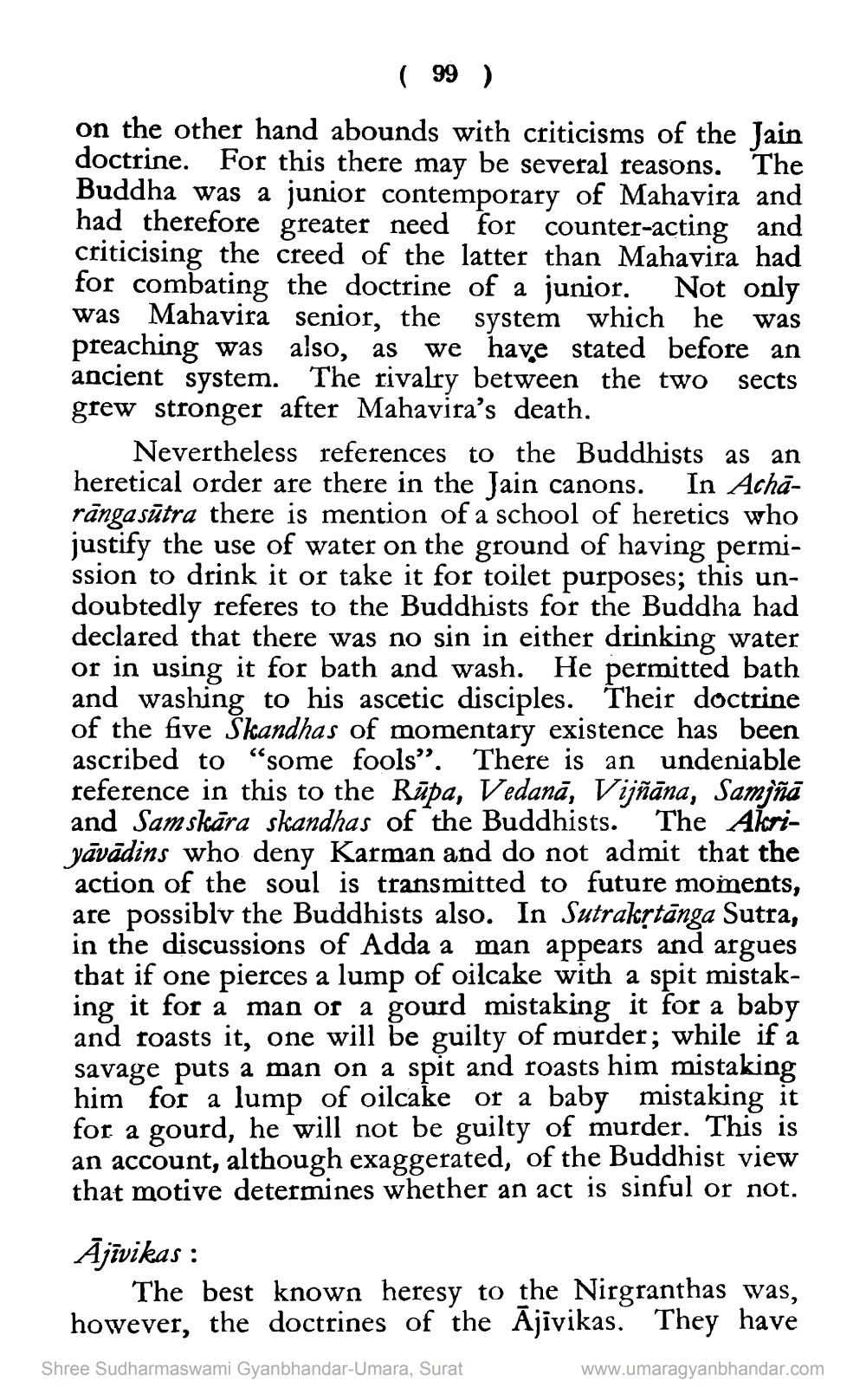________________
( 99 ) on the other hand abounds with criticisms of the Jain doctrine. For this there may be several reasons. The Buddha was a junior contemporary of Mahavira and had therefore greater need for counter-acting and criticising the creed of the latter than Mahavira had for combating the doctrine of a junior. Not only was Mahavira senior, the system which he was preaching was also, as we have stated before an ancient system. The rivalry between the two sects grew stronger after Mahavira's death.
Nevertheless references to the Buddhists as an heretical order are there in the Jain canons. In Acharānga sūtra there is mention of a school of heretics who justify the use of water on the ground of having permission to drink it or take it for toilet purposes; this undoubtedly referes to the Buddhists for the Buddha had declared that there was no sin in either drinking water or in using it for bath and wash. He permitted bath and washing to his ascetic disciples. Their doctrine of the five Skandhas of momentary existence has been ascribed to "some fools”. There is an undeniable reference in this to the Rūpa, Vedanā, Vijñāna, Samjñā and Sam skāra skandhas of the Buddhists. The Akriyāvādins who deny Karman and do not admit that the action of the soul is transmitted to future moments, are possibly the Buddhists also. In Sutrakrtānga Sutra, in the discussions of Adda a man appears and argues that if one pierces a lump of oilcake with a spit mistaking it for a man or a gourd mistaking it for a baby and roasts it, one will be guilty of murder; while if a savage puts a man on a spit and roasts him mistaking him for a lump of oilcake or a baby mistaking it for a gourd, he will not be guilty of murder. This is an account, although exaggerated, of the Buddhist view that motive determines whether an act is sinful or not.
Ājivikas :
The best known heresy to the Nirgranthas was, however, the doctrines of the Ājivikas. They have Shree Sudharmaswami Gyanbhandar-Umara, Surat
www.umaragyanbhandar.com




